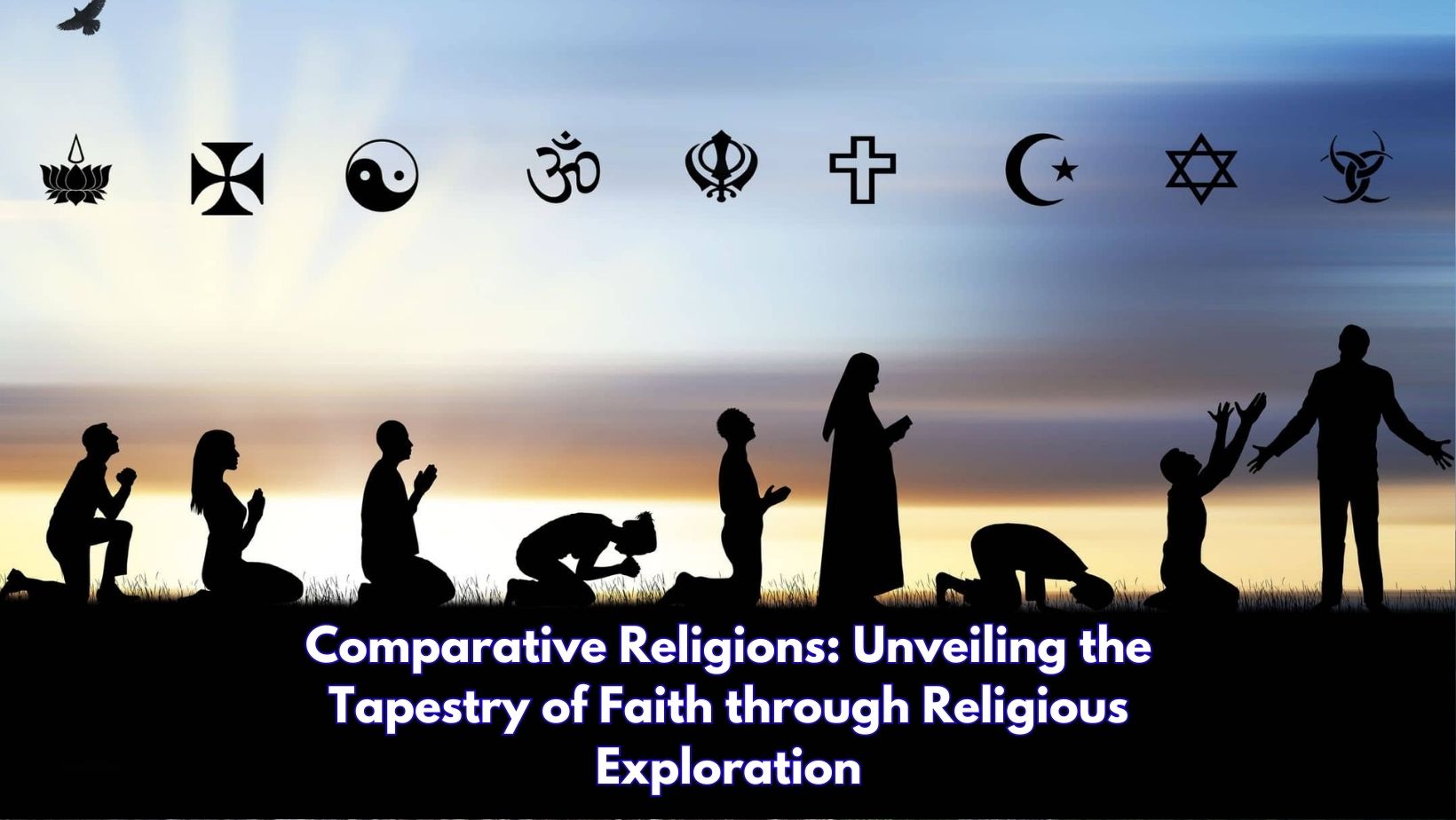Comparative Religions: Unveiling the Tapestry of Faith through Religious Exploration

In a world characterized by its diverse cultures, beliefs, and practices, the exploration of religions emerges as a fascinating journey into the intricate threads that compose the tapestry of faith. Comparative religions, a field that seeks to understand and appreciate the variegated doctrines and spiritual practices of different faiths, allows us to unravel the complexities of human devotion and gain a deeper insight into the essence of belief systems. Through religious exploration, we embark on a quest to comprehend the interwoven narratives that shape our global society.
The Tapestry of Faith: A Multicolored Melange
Imagine the world’s religions as vibrant strands of thread, each unique in its hue, texture, and pattern. Venturing into the domain of comparative religions, we intricately intertwine these strands, crafting an enchanting fabric of devotion. From the elaborate ceremonies within Hinduism to the unwavering monotheism of Christianity, and from Buddhism’s serene Zen philosophy to Sufism’s enigmatic mystical rituals, this intricate mosaic stands as a living testament to the diverse panorama of human spiritual manifestations.
Religious Exploration: A Journey of Understanding
At its core, religious exploration is not merely an academic pursuit but a transformative journey of understanding and empathy. A sojourn that surpasses the confines of geography, traverses through epochs of history, and forges connections across cultural divides unfolds before us. Through the prism of comparative religions, we acquire the capacity to perceive the world from diverse perspectives, nurturing qualities of acceptance, reverence, and concord.
Within this expedition, we unveil the foundational tenets that anchor different belief systems, discerning their influence on ethical frameworks, communal conventions, and personal personas.. We may marvel at the interconnectedness of beliefs despite their apparent differences. The golden rule, for instance, emerges as a common thread woven into the fabric of numerous religions, promoting compassion and altruism.
Enriching Perspectives: The Benefits of Comparative Religions
Engaging in comparative religious studies offers a multitude of benefits that extend beyond theoretical knowledge. It empowers individuals to embrace diversity and navigate the complex tapestry of our globalized world. Here are some ways in which the exploration of religions enriches our perspectives:
- Cultural Sensitivity: By immersing ourselves in the beliefs and practices of different faiths, we cultivate cultural sensitivity and broaden our horizons, fostering open-mindedness and empathy.
- Interfaith Dialogue: Comparative religions lay the foundation for meaningful interfaith dialogue, allowing individuals from various backgrounds to engage in constructive conversations and find common ground.
- Critical Thinking: Analyzing and comparing various religious doctrines nurtures critical thinking skills as we evaluate the origins, evolution, and impact of these belief systems.
- Personal Growth: Exploring different faiths prompts us to reflect on our own spiritual journey, leading to personal growth and a deeper understanding of our own convictions.
- Conflict Resolution: A comprehensive understanding of different religions equips us with tools to address religious misunderstandings and conflicts, promoting peaceful coexistence.
Embarking on the Journey: Navigational Tools
As we embark on the voyage of comparative religions, certain navigational tools can guide us through the intricate landscapes of belief systems:
- Historical Context: Understanding the historical context in which a religion emerged provides insights into its development and relevance within society.
- Sacred Texts: Exploring the sacred texts of various religions allows us to comprehend their foundational teachings and principles.
- Rituals and Practices: Delving into rituals and practices unveils the experiential dimensions of faith, highlighting the ways in which believers connect with the divine.
- Symbolism and Art: Symbols and artistic expressions within different religions offer a window into their core values and spiritual aesthetics.
- Modern Manifestations: Observing how religions adapt and evolve in the modern world sheds light on their resilience and enduring impact.
In our endeavor to unravel the tapestry of faith through religious exploration, we are granted a unique opportunity to connect with the spiritual essence that unites humanity, transcending divisions and fostering a sense of unity in diversity. As we thread through the rich narratives of different faiths, we celebrate the beauty of religious plurality and the profound depths of human devotion. The journey of comparative religions unveils not only the complexities of belief systems but also the shared aspirations that bind us together as a global family.
Read more – Independent Vehicles: Reforming How We Travel
Read more – Reviving Traditions: Ayodhya Cultural Renaissance Initiatives
Tags: religious exploration